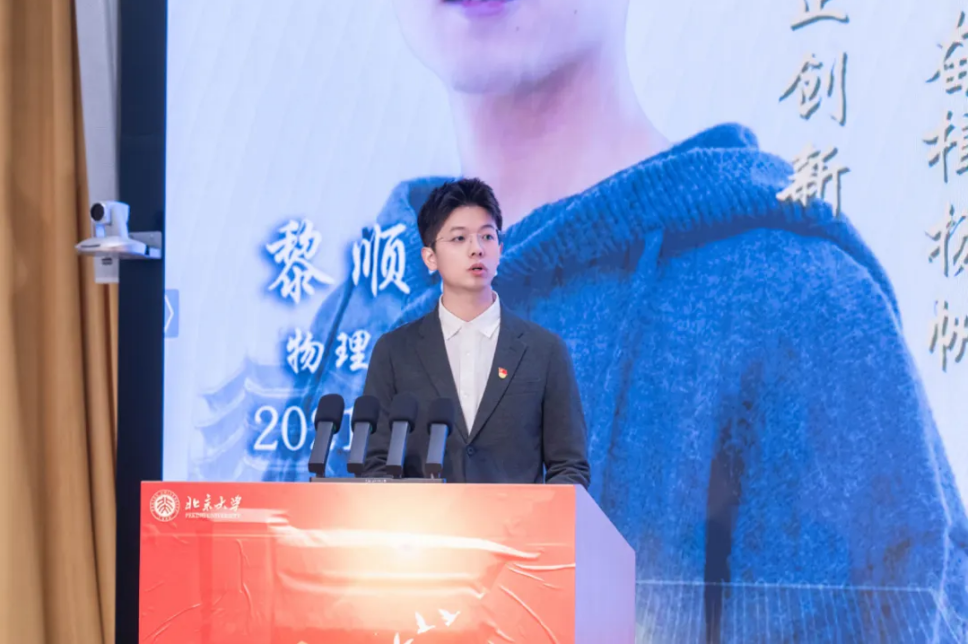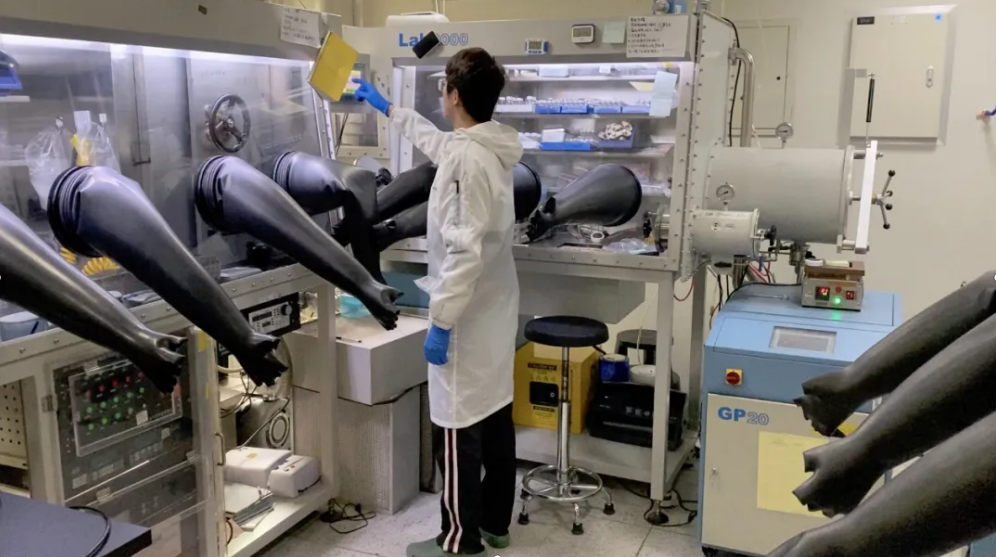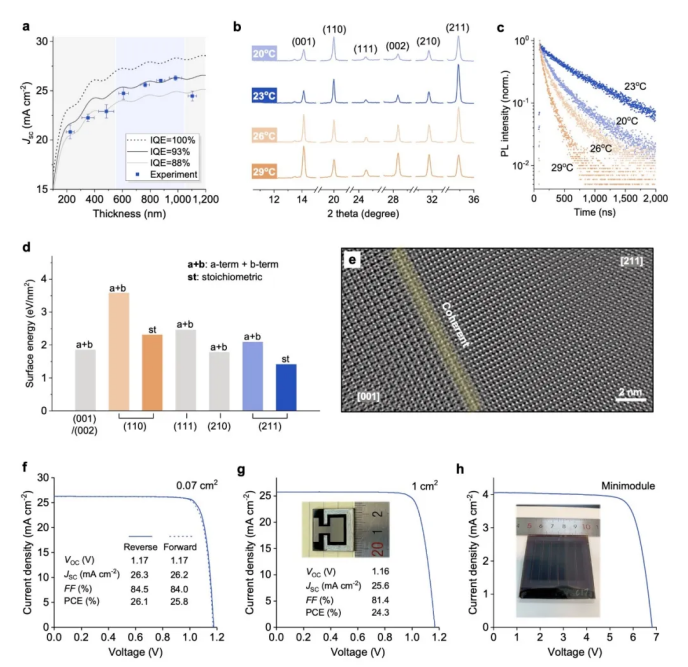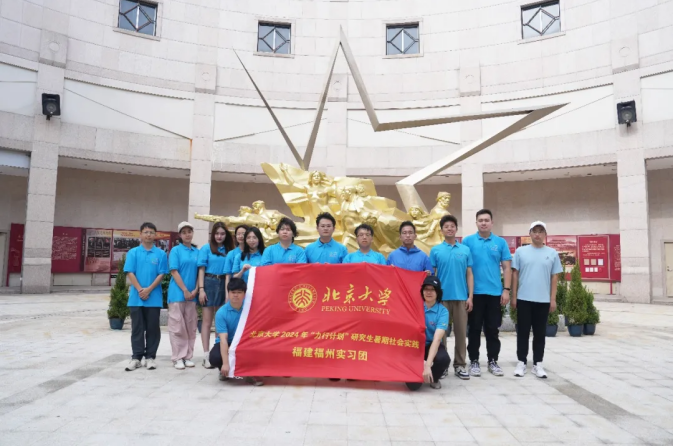Peking University, February 20, 2025: Peking University’s Student of the Year 2024, Li Shunde, exemplifies the pursuit of excellence both in the lab and beyond. A Ph.D. student from the School of Physics at PKU, Li has made remarkable strides in the field of solar cell research while balancing an array of leadership roles on campus. His journey is one of perseverance, breakthrough moments, dedication to academic pursuits, and an aspiration for a well-rounded, fulfilling life.
From quest to conquest: the “level-up” moments in solar cell research
In 2024, Li Shunde published two papers in Nature, an accomplishment built on countless hours spent in the lab. “It was as if I was going through a roller coaster ride of highs and lows, with moments of failure and breakthroughs,” Li reflected. “Over time, I’ve learned to approach challenges with a more composed mindset.”
For Li, conducting research is akin to “leveling up” in video games: each inquiry upgrades his “gear,” and each published paper expands the “map” of the scientific field. The long, challenging expedition charts the course for a leap in scientific thinking.
It took about two and a half years from selecting the topic to enhancing battery performance, and eventually, to the papers’ acceptance. Looking back on the process, Li identifies two key milestones: improving battery efficiency and closing the hypothetical loop after major revisions to the papers.
Li Shunde conducting research in the lab
Li’s research focused primarily on perovskite solar cells. After nearly a year and a half of dedicated research, in March 2023, his team received a third-party performance certification proving the improvement in photoelectric conversion efficiency. Follow-up efforts were made throughout the summer in 2023, when the team faced repeated setbacks and rejections of their submissions. Nevertheless, Li and his team remained determined, relentlessly revising the papers and shifting their approach.
Under the guidance of Professor Zhu Rui, the team reworked the paper from scratch, preserving only a quarter of the original framework. Coincidentally, a casual conversation with Professor Luo Deying about temperature sparked inspiration. The next day, Li hastened to test the idea in the lab, discovering that temperature had a significant impact on device preparation, especially in terms of high-Miller-index facets.
With the experimental validation proceeding smoothly, after nearly two years of revisions, the team received the long-awaited Nature acceptance email in the fall. Their paper introduced the “coherent growth of high-Miller-index facets” approach to producing high-quality perovskite films through precise temperature control. Building on this, the team developed perovskite solar cells with a photoelectric conversion efficiency of over 26%, addressing the long-standing seasonal dependence of battery performance, and demonstrating significant originality and potential for commercialization.
“We further verified our hypotheses, which aligned perfectly with the results from our collaborating professors, bringing the process to a gratifying conclusion.” Li recounted.
Key data from Li Shunde’s Nature publication
Lab, leadership, and life: a multifaceted journey
Apart from his research, Li Shunde takes on many roles on campus, including class representative, student counselor, and team leader for various practical projects. In each of these positions, he’s always seen actively engaging with others, carrying out extracurricular tasks with enthusiasm.
“I enjoy connecting and communicating with people. Once a conversation gets started, I can go on for quite a while,” Li shared. “The reason I’ve decided to carry out work related to student affairs is that I see it as a chance for vibrant and meaningful experiences.”
With their diverse and demanding nature, the tasks were no mean feat, much more managing multiple roles. “With an equal amount of time for everyone, it comes down to either investing more time or making better use of it. That’s all about good planning, discipline, and willpower,” Li explained. “I make to-do lists and use the Eisenhower matrix to stay on track.”
From the serene Weiming Lake to bustling towns and villages across China, Li has led teams on research trips to places like Jinzhai County, Fuzhou and Shenzhen. In the summer of 2024, his team traveled to Jianou City in Fujian Province for a project focused on promoting cultural confidence, during which they explored Zhu Xi’s philosophy and became the first team from Peking University to study its cultural impact in the region.
Li Shunde and his team engage in summer social practice in Fujian province
Li embraces life with a sense of equilibrium. After stretches of intense work, he makes time for relaxation, playing badminton with friends, enjoying meals, or simply reading in the park. “I’ve probably visited close to 20 parks near the campus, revisiting some of my favorites. In the spring and fall when the weather is fine, I can see people of all ages walking around—a sight that makes for an incredible way to unwind.”
As Li puts it, “Academic research requires full immersion, while practice on the ground calls for agility in thinking”, and life in general thrives on finding harmony between all engagements. Indeed, Li Shunde’s achievements highlight a remarkable blend of scholarly distinction, leadership, and a commitment to personal well-being.
Li Shunde maintains a work-life balance in his daily routine
Written by: He Yike
Edited by: Zhang Jiang
Source: PKU Wechat (Chinese)




